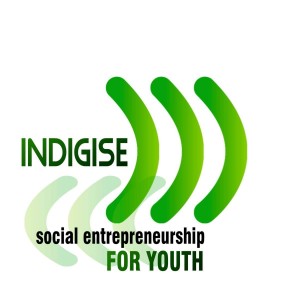By Ljupka Janevska.
“Social innovation is the process of developing creative ideas that will eventually ‘’grow’’ into practical solutions, which will improve the overall wellbeing of the community. The primary goal of implementing or designing a new social innovation is to solve different systemic issues that will hopefully contribute in increasing the enviorenment value. However, the basics of implementing a new social innovation can be found in the energy and passion of the young people, who are brave enough, not only to identify, but also to challenge and address global problems that are worthy of attention and investment.
In Europe, the process of youth social innovation is a growing challenge. Fortunately, there are a lot of successful social innovations in Europe that aim to raise awareness of the positive outcome that social innovations can have on young people and communities.
- Student integration in employment
Young graduates often struggle to find their first employment experience. In Latvia, young people are almost twice as likely to be unemployed compared to the rest of the population, due to lack of a professional network and skills experience. The youth social innovation of ‘’The Demola platform’’, established in 2014 in Finland, connects companies with university students. The companies can submit a specific problem situation for students to address , and by participating in problem-solving workshops the students are developing their skills as potential problem-solvers instead of as young people in need of work experience.

- Active youth participation in local decision-making
One of the priorities of the EU is to provide meaningful social, civic and political engagement opportunities for all young people. Young people prefer to support causes that are directly relevant to them, and they usually engage in them through alternative participation methods, such as volunteering or online support. ‘’The Youth Participatory Budgeting (YPB)’’ is a Portuguese youth social innovation that aims to foster an active participation of young people in the decision-making process, and thus promote a stronger sense of citizenship, through an online platform that serves young people’s need for democratic participation.
● European exchange programme for young Entrepreneurs
Erasmus for Young Entrepreneurs is a youth social innovation that provides ambitious young European entrepreneurs with the necessary skills to start or successfully run a small business in Europe. New entrepreneurs gather and exchange knowledge and business ideas with an experienced entrepreneur, with whom they stay and collaborate for a period of 1 to 6 months. ‘’Erasmus for Young Entrepreneurs’’ is financed by the European Commission and operates across the Participating Countries with the help of the local contact points, competent in business support.

- Youth opportunities in the economy
‘’REvive Greece’’ is an interesting social innovation in Greece that helps young people from the most vulnerable groups (unemployed Greeks, refugees, migrants, etc.). ‘’REvive’’ is a registered non-profit mission that has the goal to integrate these vulnerable, social groups into the socioeconomic system by helping them to gain skills in the IT sector.
Conclusion
All over the world in the past decades, there has been an increased interest in social innovation as a way to achieve sustainable and economic growth. Today, social innovation as a valuable practice and worldwide movement is helping to solve some of the world’s most pressing problems with new solutions such as fair trade, distance learning, mobile money transfer, restorative justice, and zero-carbon housing. But, besides solving, social innovation by understanding and identifying a problem contributes in changing people’s beliefs , perceptions and practices about social enterprises, business engagement, and philanthropy. So, the rise of social entrepreneurs and social enterprises is not only encouraging the mobilization of people in the innovation process but also providing the’’force’’ for economic growth and social equality in the enviorenment.”
Source: https://digitalsocialinnovation.org/young-people-and-social-innovation-in-europe/
This publication has been prepared within INDIGISE project. The content of this publication is the sole responsibility of the project coordinator and may not always reflect the views of the European Commission or the National Agency.

















Leave A Comment